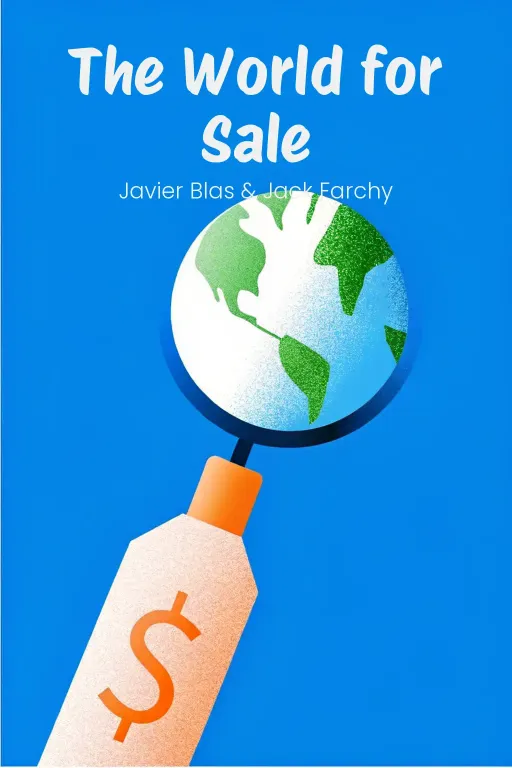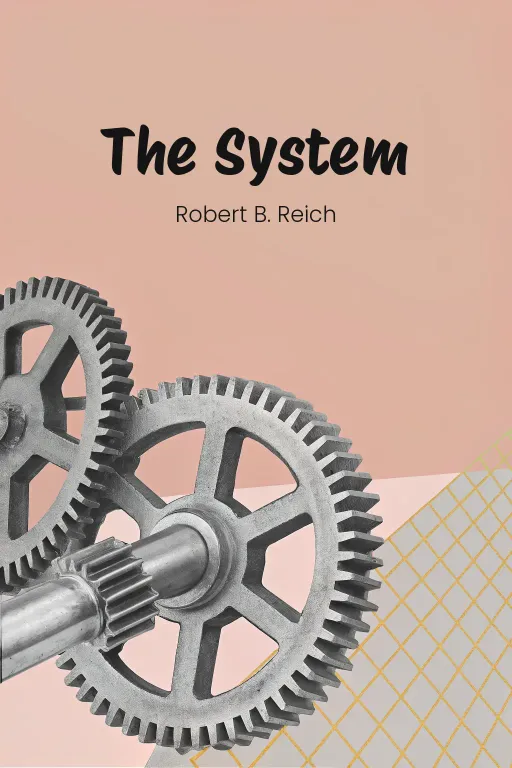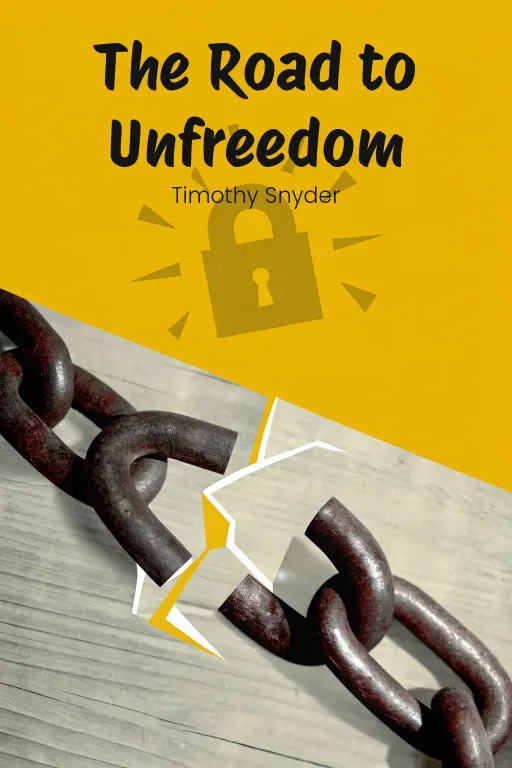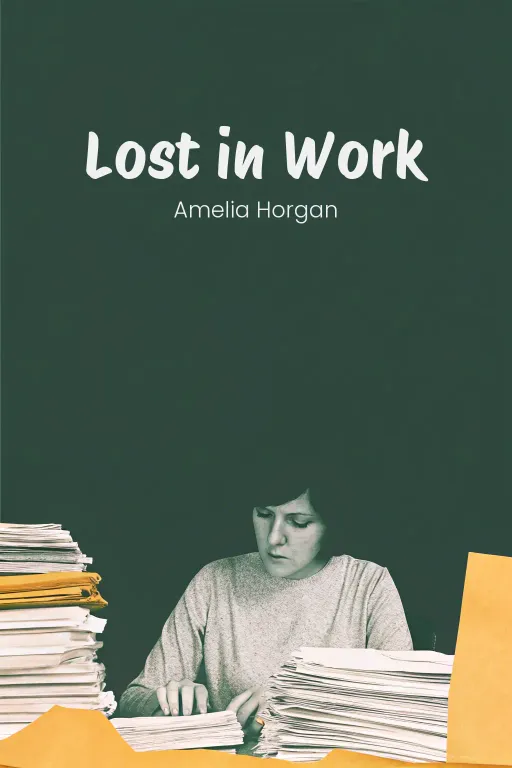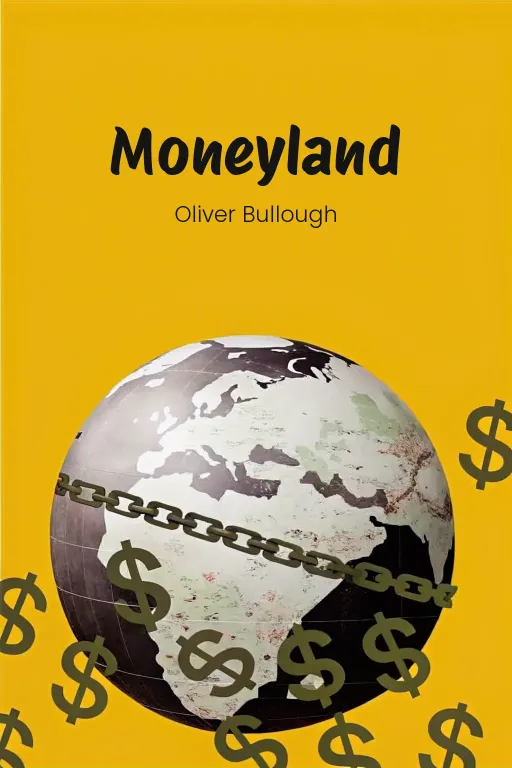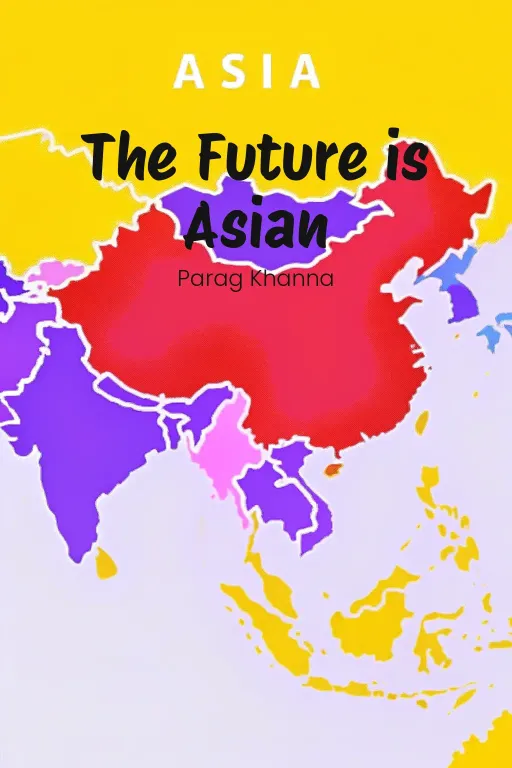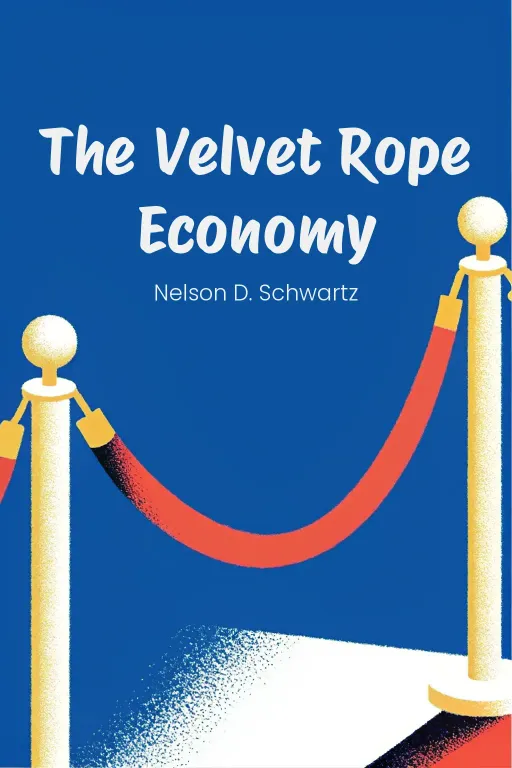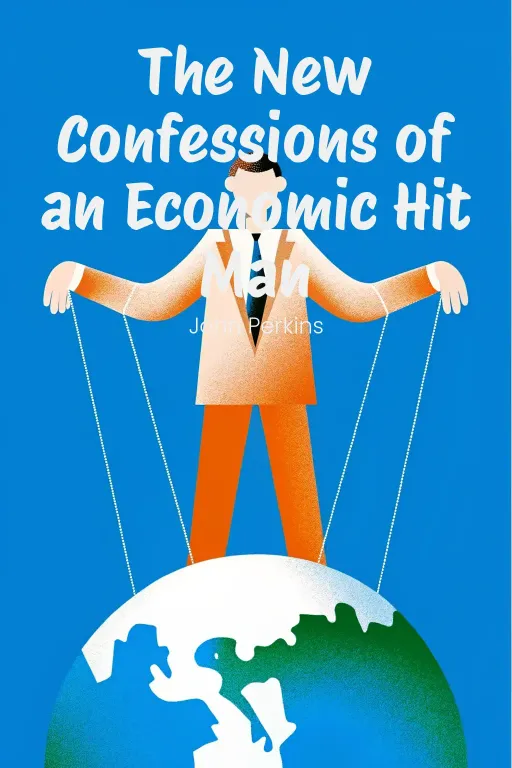
Stash Your Cash: World's Secret Playground
Podcast by Let's Talk Money with Sophia and Daniel
Why Thieves and Crooks Now Rule the World and How to Take It Back
Introduction
Part 1
Daniel: Hey everyone, welcome back! Today, we're diving into something that’s all around us, yet incredibly well-hidden. Think of a world where the super-rich can stash their cash, dodge taxes, and basically be untouchable. It's a secret playground built on loopholes, and it's called Moneyland. Sophia: Moneyland, huh? Sounds like a dream destination for some, a nightmare for the rest of us. I'm guessing it's not exactly a budget-friendly vacation spot. Daniel: Exactly. Moneyland is where kleptocrats, oligarchs, you name it, funnel billions from places like Ukraine, Nigeria, Russia into havens like Jersey or Nevis. And the “really” wild part? Western countries, the supposed champions of democracy, are major enablers. Sophia: Right, the "we don't ask, we don't tell" approach to international finance. But how do you even begin to unravel something this tangled? Daniel: Well, that's what Oliver Bullough’s book, Moneyland, is all about. It exposes how corruption and financial secrecy are undermining democracies and exacerbating inequality. He doesn't just name names, he traces the whole evolution of these offshore systems and shows why fixing them is so tough. Sophia: So, it's not just about shady tropical islands and Swiss bank accounts, is it? This has a good dose of first-world complicity mixed in. Daniel: Absolutely, it does. Today, we’re going to break it all down. First, we’ll look at the mechanics of financial secrecy—shell companies, trusts, tax havens. We’ll show you exactly how the wealthy use the system to keep their money under wraps. Sophia: A global game of hide-and-seek, where the money always seems to win. Daniel: Then, we’re getting into the human cost of kleptocracy. Why should we care if billions vanish overseas? We'll talk about the real-world impact, like underfunded hospitals, failing schools, and rampant inequality. Sophia: That "trickle-down" effect, where instead of prosperity, we get crumbling infrastructure and, you know, occasional polio outbreaks. Nice. Daniel: Exactly. Finally, we’re going to look at the fight for transparency. Governments and activists are trying to tackle this beast with global cooperation and reforms like FATCA and the Common Reporting Standard. Can these measures actually fix the system, or are we just putting a band-aid on a sinking ship? Sophia: My money's on the band-aid, but hey, let's see what happens. I always enjoy a good underdog story.
The Concept and Mechanisms of Moneyland
Part 2
Daniel: Okay, so picking up where we left off, let's “really” get into the nitty-gritty of Moneyland—the core mechanisms that make it such an impenetrable fortress. If Moneyland were an operating system, the code would definitely be written in shell companies, trusts, tax havens, and—unfortunately—Western complicity. Sophia: Right, the secret sauce of financial invisibility, precisely. But let’s start with the basics: shell companies. Daniel, enlighten us. What is a shell company, exactly, and how are they actually used? Because when I hear "shell," I think of turtles, not, you know, dodging taxes. Daniel: That's a fair comparison, actually - a shell company hides its true owner beneath layers of protection, much like a turtle’s shell. A shell company doesn’t have employees, products, or any real business operations to speak of. But it exists on paper, often in multiple jurisdictions, as a tool for hiding—well, pretty much everything. Real estate, bank accounts, yachts, even gold-plated toilets, you name it. By layering these companies across different countries, the actual owner is completely shielded from any kind of scrutiny. Sophia: And when you say “layering,” you’re not talking about some kind of, like, seven-layer dip, right? It’s more like a financial black hole where anyone trying to trace ownership ends up totally confused, dazed, and probably hungry. Daniel: Exactly! Take Viktor Yanukovych, that infamous former Ukrainian president. When protesters stormed his Mezhyhirya residence back in 2014, they found a palace straight out of a dictator’s wildest dreams—gold fixtures everywhere, a private golf course, even a replica Spanish galleon docked on a lake. But here’s the kicker: the trail of ownership led to a complete labyrinth of shell companies, all registered in secrecy jurisdictions, making it next to impossible to connect any of those assets directly back to him. It was like peeling an onion with absolutely no core. Sophia: So, while Ukrainians were freezing in the streets protesting for change, their leader was lounging away on a gold toilet—and the entire setup was legally practically untouchable. Makes you wonder how many other golden toilets are quietly being hoarded around the globe as we speak. Daniel: A disturbing thought, but probably right. Yanukovych’s case is definitely emblematic of a much broader trend—kleptocrats using these mechanisms to bleed their countries dry. Which brings us to the next piece of the puzzle: tax havens. An absolutely vital part of Moneyland’s overall infrastructure. Sophia: Ah, tax havens. The global equivalent of that old saying, “Don’t ask, don’t tell.” And let me guess—this isn’t just about your typical tropical islands with cocktails and sunshine. The most effective tax havens are probably places you’d never even want to vacation in, right? Daniel: True! Though some do operate in paradise-like settings, like Nevis or the British Virgin Islands. Nevis, for example, has less than 11,000 residents, but it’s a titan of shadowy financial activity. There, you can create a company in just hours, pay minimal taxes—or none at all—and, critically, never disclose the true owners. The secrecy is so airtight that even a court order often won’t reveal the real hands behind the money. Sophia: So, Nevis is basically running a Financial Witness Protection Program. “Hide your assets here, no questions asked.” But it’s not just small islands. You mentioned Western complicity, right? Let’s hear about the big leagues. Daniel: Western financial centers—London, New York, even Luxembourg—are “really” deeply entrenched in Moneyland’s ecosystem. And they aren’t passive participants, either. They’re active enablers, providing the services, networks, and the expertise that kleptocrats need to clean their money. Here’s a wild example: Brad Birkenfeld, a whistleblower and former UBS banker, described how his employer helped ultra-wealthy clients evade taxes. One method? Smuggling diamonds across borders in—you won’t believe this—toothpaste tubes. Sophia: You’re kidding—diamonds in toothpaste tubes? That takes multi-tasking money laundering to a whole new level. “Brush your teeth, fund your crime syndicate,” I suppose? Daniel: It sounds ridiculous, I know, but it was real. And it’s not just banks playing along. Lawyers set up trusts, accountants prepare tax filings, and even governments look the other way—they’re more than happy to welcome foreign money into property purchases or investments without asking too many questions about where that money actually originated. Sophia: So when we marvel at oligarchs snatching up London mansions or New York penthouses, it’s not an accident. It’s the system working exactly as it was designed to. Daniel: Precisely. And while all of this might seem, abstract, there are very real-world consequences that ripple through communities, especially in the countries from which this wealth is extracted. Developing nations like Nigeria are prime examples. Remember Diepreye Alamieyeseigha, that "unflatteringly" named governor who was caught at Heathrow Airport with $1.5 million in cash? Sophia: You mean the guy who thought carrying literal piles of cash was a subtle financial strategy? How could we forget? Daniel: Right, but that was only a tiny fraction of his wealth. The bulk of it was hidden offshore, through companies in secrecy jurisdictions. And let's be totally clear, tax havens don’t just help criminals hide money—they help those bad governments bleed resources that should be invested in hospitals, schools, infrastructure. It creates a grotesque imbalance where ordinary citizens face crumbling public services, while their elites stash their nation’s wealth abroad. Sophia: Right, so while folks in Nigeria were grappling with power outages or health crises, their governor was safely tucking away his millions in Nevis or the Caymans. A global game of Robin Hood in reverse—steal from the poor to give to the rich, right? Daniel: Exactly, Sophia. And this theft perpetuates poverty. The resources siphoned out of these nations could have been used to tackle inequality, provide clean water, and fight preventable diseases. Instead, they’re parked in offshore accounts or funneled into extravagant personal luxury. Remember that $40 million wedding in Angola? Another stunning example of Moneyland’s very real human cost. Sophia: And let me guess: nobody at that wedding batted an eyelid about where the money came from. Because when you’re sipping champagne under a tent made of silk, who cares about economic justice, right? Daniel: It's this normalization of extravagance, totally divorced from the actual consequences, that defines the ethos of Moneyland. And what “really” fuels the system, beyond the mechanisms we’ve discussed, is its adaptability. Every time there’s a reform, Moneyland’s architects simply find new loopholes. Anonymous trusts, shell corporations in emerging offshore hubs—it’s a game of whack-a-mole, where the stakes are global governance and equality. Sophia: And every time a loophole gets closed, someone in an office—probably in Delaware—says, “Don’t worry. We’ll find another way.” It’s grimly impressive, actually. Efficient, even. Daniel: Which is why understanding these mechanisms—shell companies, tax havens, Western complicity—is crucial before we can even start to discuss solutions. If we can’t identify the scale and tools of Moneyland, then tackling it becomes practically impossible.
Societal and Political Impacts of Corruption
Part 3
Daniel: So, now that we have a better understanding of how Moneyland works, let's dive into the real-world impacts, okay? I mean, all the secrecy, the shell companies, offshore accounts—they're not just abstract financial concepts. They have devastating effects on real societies. Let's talk about the societal and political impacts of corruption, and build on the foundation of Moneyland, exploring the tangible consequences of kleptocracy and how it destroys trust, governance, and people's lives. Sophia: Right, so this is where all the financial smoke and mirrors actually hit the ground, right? Corruption's a spectator sport for the elites, but for the rest of us, it’s just dealing with the fallout. Where do you want to start with this? Daniel: Let’s start with Ukraine. I honestly don’t think you can overstate the damage that kleptocracy has done to that country. The healthcare system, for example, has essentially been decimated by corruption in key areas. In 2012, the health ministry was caught massively overpaying for HIV and tuberculosis medications—prices were up to 300% higher than what international charities were paying. So, these inflated contracts lined the pockets of government insiders, while everyday Ukrainians, you know, they just couldn't get access to essential treatments. Sophia: Right, and when people get desperate for those treatments, they end up having to bribe their way to basic medical care. Health as a privilege for people who can grease the right palms: that’s just complete and utter nightmare fuel. So, are we talking regular run-of-the-mill kickbacks, or is this just deep-seated, systemic rot? Daniel: Oh, it’s systemic, Sophia. Corruption was baked into every level of the system, to the point where even doctors—who were already getting paid next to nothing—started quietly demanding bribes from patients. Can you imagine being a mother in a hospital, her child is dying, and then the doctor makes those subtle requests, or just writes down an amount—the price for treatment? It's not just heartbreaking; it's a complete moral breakdown of the system. Sophia: Yeah, this is like a dystopian "pay-to-play" healthcare system where the stakes are literally life and death. You almost can't help but pity the doctors, who are getting pushed right into this trap because of their ridiculous salaries. Still, at the end of the day, it's the patients who end up paying the highest price. I’ve seen this pattern before: kleptocrats gut public services so they can fund their luxurious lifestyles, right? Daniel: Exactly. Take then-President Viktor Yanukovych. After he was ousted in 2014, protesters found his ridiculously opulent Mezhyhirya palace—private golf course, gold-plated fixtures in the bathroom, even a Spanish galleon docked on his property. While Ukrainians had to deal with stagnant wages and a crumbling infrastructure, their president was, quite literally, living like a king. Sophia: It’s almost cartoonishly excessive. A private galleon in landlocked Ukraine? All that's missing is a moat full of alligators. But, here's the kicker for me: it's not just the blatant greed; it's how little they fear any consequences. What happened to all the efforts to recover the stolen money? Daniel: Well, that's one of the real tragedies. Activists who led the revolution in Ukraine demanded justice, but getting those assets back has been painfully slow. I mean, the international sanctions against Yanukovych and his buddies froze some of their funds, but the bureaucracy and the legal battles have taken years. It’s understandable that it makes people cynical: how can society ever trust reform when the stolen riches stay stashed away overseas? Sophia: Right, nothing says, "institutional failure" quite like a revolution that gives people hope, only for all the kleptocrats' loot to remain untouched in mansions and offshore accounts. Ukraine is a pretty glaring example, but, well, I imagine Russia just takes kleptocracy up to a whole new level, doesn’t it? Daniel: Oh, Russia is playing a completely different game. After the Soviet Union fell, the chaos of the '90s created this class of oligarchs who just pillaged state resources at breakneck speed. Remember the FIMACO scandal? $37.6 billion—originally intended to stabilize the economy, much of it from IMF loans—just vanished into a shell company based in Jersey. And the central bank itself was actually involved. Sophia: Wait, the “central bank” of Russia—the people who are supposed to be guarding the nation's economy—were funneling billions into offshore entities? That’s like hiring a fox to guard the henhouse, and that fox then builds itself a mansion in Jersey. Daniel: Exactly, that's what it was. In the meantime, Russia's infrastructure fell apart, poverty skyrocketed, life expectancy went down—ordinary Russians felt all the pain from the kleptocrats' actions. And what happened to the whistleblowers? They were hunted down. Alexander Litvinenko, who exposed the high-level links between the Kremlin and organized crime, was assassinated by poisoning in London. Sophia: Litvinenko's case still gives me the chills. It's not just corruption; it's weaponized corruption. Silencing dissent to protect the status quo. It sends a terribly loud message: Challenge the system, and you’re next. Daniel: And that fear trickles down throughout society. In Russia, the government's repression tries to create an illusion of stability, even though the actual governance model is fundamentally kleptocratic. It’s heartbreaking, but sadly effective. And sadly, many kleptocracies around the world use this same playbook, including Nigeria. Sophia: Ah, Nigeria. Oil-rich, yet perpetually impoverished—it's like a masterclass in how corruption can just destroy potential. Should we talk about the "ten-percenter" scheme? Daniel: Certainly. The "ten-percenter" culture in Nigeria is notorious. Government officials routinely skim off 10% of public contracts. Billions have just disappeared this way. Revenues that were meant for schools, roads, or hospitals end up in offshore accounts instead, funding extravagant personal luxuries like $10 million estates in London or private jets. Sophia: Speaking of offshore accounts, didn't a Nigerian governor get caught trying to sneak $1.5 million in cash through Heathrow? Daniel: Oh, that would be Diepreye Alamieyeseigha! He was comically brazen, but his shenanigans typified a larger trend: while Nigerians struggled with power outages and terrible roads, their leaders were busy funneling money overseas. The gap between those in power and everyday citizens couldn’t be any wider. Sophia: And that gap breeds this frustration, and then it normalizes corruption at all levels. I mean, if people see their leaders looting without facing any consequences, then why wouldn’t they just think that corruption's just business as usual? Daniel: Exactly, and that’s the real tragedy: it just completely erodes trust in governance. When corruption just becomes routine, any attempt at reform is like an uphill battle. People get cynical, society stagnates, and any attempt to change anything feels like just screaming into the void. Sophia: It’s frustrating because the consequences are so extreme. We're talking about opportunities wasted—lives that could have been saved, development that never happened—just thrown away. It’s like Moneyland is this giant vacuum, sucking the life out of entire nations. And yet, somehow, it keeps going on. Daniel: That’s why it’s so important to talk about the societal impacts of corruption. It’s not just some abstract concept—it’s about shattered communities, destroyed lives, and betrayed hopes. And unless we confront these deep-seated issues, any efforts toward reform are never going to gain the traction they need.
Challenges and Pathways to Reform
Part 4
Daniel: So, the systemic damage from corruption—it really demands we dig deeper into how to fight it. Let's move on to the challenges and, more importantly, the possible solutions, okay? After going through all the ways Moneyland operates and the human cost, it's only right that we ask: What's stopping us from fixing this, and what could actually work to dismantle it? Sophia: Right, because, honestly, stopping Moneyland at this point sounds like trying to hold back a flood with paper towels. But I'm guessing there's both institutional failure and good old-fashioned greed keeping it going strong. Where do we even begin? Daniel: Well, one of the biggest problems is how libel laws are being used as weapons, especially in places like the UK. These laws mostly protect the wealthy and powerful and really discourage investigative journalism. It's a huge obstacle that makes exposing corruption not just hard, but really dangerous, you know? Sophia: How dangerous are we talking? Like, financially, professionally, or are we getting into spy movie territory here? Daniel: Mostly financially. Think about Professor Karen Dawisha. She wrote a book exposing corruption connected to Vladimir Putin's rise to power using tons of solid research. But Cambridge University Press, her publisher, turned it down. Not because it wasn't accurate, but because they were scared of the potential legal costs if they got sued. Sophia: So, even the truth has a price, huh? And for CUP, that price was too high. I bet they politely told her, "Your research is great, but we'd rather not risk getting sued." Daniel: Exactly. The publisher basically said her work was defensible, but it was safer not to poke the bear. Dawisha pointed out that British citizens are kept in the dark about how corrupt money gets into their economy, and that's because of these chilling effects. Sophia: That's the definition of irony, isn't it? Libel laws are supposed to protect reputations, but they're being used to protect... well, the crooks messing up society. What's the solution here? Daniel: Legal reform, obviously! Countries like the US have stronger free speech protections under the First Amendment, which really limits frivolous lawsuits. But without a global push to level the playing field, investigative journalism will stay vulnerable in places like the UK, where libel laws favor the person bringing the suit. Sophia: Right, because the second journalists hesitate to publish the truth, Moneyland gets another layer of cover. But it's not just legal barriers, is it? Didn't Bullough say that institutions themselves don't want to be transparent? Daniel: Totally. Take FATCA, the Foreign Account Tax Compliance Act in the US. It was supposed to make foreign banks report accounts held by Americans to stop offshore tax evasion. It did cause some ripples. But the problem is FATCA's hypocritical. Other countries have to share information with the US, but American states like South Dakota still let people hide money in anonymity-friendly trusts. Sophia: Wait, so the US is the global tax cop but leaves its back door wide open? That's impressive double-dealing. Like saying, "Do as I say, not as I do in South Dakota." Daniel: Exactly! And same with the OECD's Common Reporting Standard, or CRS. It's a more global approach to tax transparency, but here's the catch: developing nations, the ones that suffer the most from money leaving the country, are often left out because they don't have the resources or the ability to govern effectively. It creates a system where the richer nations benefit more. Sophia: So, we're basically saying to poorer countries, "Sorry, your financial crime-fighting budget is too small to sit with us." That's... not great, to say the least. How do we fix that? Daniel: Resource sharing is key. Wealthier nations need to fund enforcement in developing countries, helping them build the tools to track dirty money. Global cooperation isn't just the right thing to do; it's necessary for any real reform. Sophia: Cooperation sounds great in theory, Daniel, but come on. When have you ever seen countries happily share resources, except for, maybe, sports highlights? Daniel: That's where activism comes in. Transparency won't happen unless the public demands reform. Civil society groups and investigative activism can raise awareness and shine a light on the systemic issues that governments would rather ignore. Sophia: Right, like when the Panama Papers dropped, and for a few days everyone cared about offshore accounts. Whistleblowing got a temporary hero status. Daniel: Exactly! Whistleblowers like Brad Birkenfeld, who exposed UBS, can really make a difference, but only if they have legal protection and platforms to share their findings. Without that, speaking out is a huge risk. Sophia: But isn't grassroots activism even more important? Investigative journalism is powerful, sure, but getting the public angry enough to demand change feels like the real key. Daniel: Totally! Advocacy groups, protests, petitions—that's what holds governments responsible and pushes policymakers to fix outdated systems. Transparency International and similar organizations show that consistent public pressure can lead to real reforms. Sophia: Okay, I'll give you that. Activism does make a difference. But let's not forget: Moneyland adapts whenever reforms start to work. Close one loophole, and twenty more pop up. Can we really outsmart an industry that's designed to outlast laws? Daniel: That “adaptability” is the biggest challenge, Sophia. But small steps, like FATCA or CRS, have already made small dents in Moneyland's armor. It's a slow process, but real change is possible with collective action, global cooperation, and consistent public demand for transparency. Sophia: So, you're saying it's David versus Goliath, but even David needs a team. Okay, I'm rooting for that, but I'm still a bit skeptical.
Conclusion
Part 5
Daniel: Okay, time to wrap things up. Today, we've “really” gone down the rabbit hole into Moneyland, this “really” obscure world where the mega-rich are basically gaming the system, using all sorts of legal tricks and loopholes to stash their cash. It's all protected by this fortress made up of shell companies, tax havens, and just a whole lot of secrecy. We've talked about all the tools they use to build this empire, like anonymous trusts and international cooperation, and how this kind of theft is “really” damaging societies, right? It erodes public trust, it devastates economies, and it just makes inequality even worse. Sophia: Exactly. Moneyland isn’t just a playground for the ultra-rich; it’s like a global parasite, “really”. Think about Yanukovych’s ridiculously lavish palace or all that Nigerian oil money that just vanishes offshore. It’s not just a few bad apples, is it? The whole system gets corrupted when this kind of thing becomes normal. Let's be honest, fixing this mess is going to be slow, painful, and not at all simple. Daniel: True, it's messy, but it definitely doesn't mean it's impossible. Global initiatives like FATCA and the CRS, plus whistleblowers, investigative journalists, and public activism—they've all shown that this fortress isn't completely impenetrable. The system might adapt, sure, but so can we. Real change isn't just about changing the laws, it's about getting involved and making sure this shadow economy can't just operate without anyone noticing. Sophia: So, what's the big takeaway here? Just remember that every shell company and tax haven isn't just some abstract concept, right? It has a real cost on someone’s life, somewhere. Think of a crumbling hospital in Ukraine or a school in Nigeria that never gets built. The human cost is enormous. And that’s worth being angry about, don’t you think? Daniel: Absolutely, Sophia. Dismantling Moneyland “really” starts with just being aware of it. It's up to governments, definitely, but it's also up to us, right? We need to demand transparency, support investigative journalism, and hold these systems accountable. If anything, let's remember that the fight for justice isn't just someone else's responsibility, it's ours too. Together, we can start chipping away at Moneyland's foundation, little by little. Sophia: Right, a collective David taking on the Goliath of global greed. Bold, but I’m in. Well, Daniel, we’ve definitely stirred the pot. Now it’s up to our listeners to keep it simmering.
